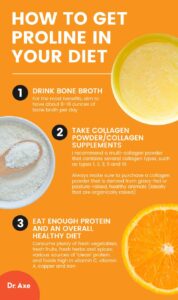
Highest proline gaining for health
For gaining good health, incorporating high-protein foods into your diet is essential as they help with muscle repair, satiety, and overall bodily functions. Here are some of the highest protein foods that can support good health:
Animal-Based Protein Sources:
1. Chicken Breast
A lean source of protein with about 31 grams of protein per 100 grams.
2. Turkey
: Similar to chicken, turkey is high in protein and low in fat.
3. Lean Beef
: Provides around 26 grams of protein per 100 grams.
4. Fish
Varieties like salmon, tuna, and cod are excellent sources of protein and also provide omega-3 fatty
acids.
5. Eggs
Contain about 6 grams of protein per egg, with a good balance of amino acids.
6.Greek Yogurt
: Offers around 10 grams of protein per 100 grams, along with probiotics for gut health.
7Cottage Chees
Another dairy product high in protein, providing around 11 grams per 100 grams
8. Pork Chops
: Contains about 25 grams of protein per 100 grams.
9. Shrimp
A low-fat source of protein with around 24 grams per 100 grams.
Plant-Based Protein Sources:
1. Lentils
Offer about 9 grams of protein per 100 grams and are high in fiber.
2. Chickpeas
Provide around 19 grams of protein per 100 grams.
3. Quinoa
: A complete protein source with about 4 grams of protein per 100 grams.
4.Tofu
:Made from soy, it provides about 8 grams of protein per 100 grams.
5. Edamame
: Young soybeans with around 11 grams of protein per 100 grams.
6. Black Beans
Offer about 21 grams of protein per 100 grams.
7. Chia Seeds
Contain around 17 grams of protein per 100 grams and are rich in omega-3 fatty acids.
8. Hemp Seeds
Provide about 31 grams of protein per 100 grams and are a complete protein source.
9. Peanuts and Peanut Butter
Around 25 grams of protein per 100 grams for peanuts.
Tips for Incorporating High-Protein Foods
https://www.botanical-online.com/en/food/proline-rich-foods
Balanced Meals
Combine protein sources with vegetables, healthy fats, and whole grains for balanced nutrition.
Snacking
: Include high-protein snacks like Greek yogurt, nuts, or hummus with veggies.
Variety
Rotate between animal and plant-based proteins to ensure a range of nutrients.
Cooking Methods
Opt for grilling, baking, or steaming to maintain the nutritional value of your proteins.
Ensuring a variety of these high-protein foods in your diet can help you achieve good health and meet your nutritional needs.For gaining good health, incorporating high-protein foods into your diet is essential as they help with muscle repair, satiety, and overall bodily functions. Here are some of the highest protein foods that can support good health:
Animal-Based Protein Sources:
1.Chicken Breast
: A lean source of protein with about 31 grams of protein per 100 grams.
2.Turkey
: Similar to chicken, turkey is high in protein and low in fat.
3. Lean Beef
: Provides around 26 grams of protein per 100 grams.
4. Fish
: Varieties like salmon, tuna, and cod are excellent sources of protein and also provide omega-3 fatty acids.
5. Eggs
: Contain about 6 grams of protein per egg, with a good balance of amino acids.
6. Greek Yogurt
: Offers around 10 grams of protein per 100 grams, along with probiotics for gut health
7.Cottage Cheese
: Another dairy product high in protein, providing around 11 grams per 100 grams.
8. Pork Chops
: Contains about 25 grams of protein per 100 grams.
9. Shrimp
: A low-fat source of protein with around 24 grams per 100 grams.
Plant-Based Protein Sources
Lentils
Offer about 9 grams of protein per 100 grams and are high in fiber.
2. Chickpeas
Provide around 19 grams of protein per 100 grams.
3. Quinoa
A complete protein source with about 4 grams of protein per 100 grams.
4. Tofu
Made from soy, it provides about 8 grams of protein per 100 grams.
5. Edamame
Young soybeans with around 11 grams of protein per 100 grams.
6. Black Beans
Offer about 21 grams of protein per 100 grams.
7.Chia Seeds
Contain around 17 grams of protein per 100 grams and are rich in omega-3 fatty acids.
8. Hemp Seeds
Provide about 31 grams of protein per 100 grams and are a complete protein source.
9. Peanuts and Peanut Butter
Around 25 grams of protein per 100 grams for peanuts.
Tips for Incorporating High-Protein Foods:
Balanced Meals
Combine protein sources with vegetables, healthy fats, and whole grains for balanced nutrition.
Snacking
Include high-protein snacks like Greek yogurt, nuts, or hummus with veggies.
Variety
Rotate between animal and plant-based proteins to ensure a range of nutrients.
Cooking Methods
Opt for grilling, baking, or steaming to maintain the nutritional value of your proteins.
Ensuring a variety of these high-protein foods in your diet can help you achieve good health and meet your nutritional needs.
Time table for eating
Creating a timetable to ensure you consume the highest amount of protein throughout the day can be beneficial, especially if you’re aiming for muscle building, weight loss, or overall health improvement. Here’s a sample high-protein meal plan spread across the day.
Breakfast
Meal
– Scrambled eggs (3 large eggs): 18g protein
– Greek yogurt (1 cup): 10g protein
– Fresh berries (1/2 cup): 1g protein
– Whole grain toast (2 slices): 6g protein
Total Protein 35g
Mid-Morning Snack
Meal
– Protein shake (1 scoop of whey protein with water or milk): 20g protein
– A handful of almonds (1/4 cup): 6g protein
Total Protein 26g
Lunch
Meal
– Grilled chicken breast (6 oz): 36g protein
– Quinoa salad (1 cup cooked quinoa): 8g protein
– Steamed broccoli (1 cup): 4g protein
Total Protein 48g
Afternoon Snack
Meal
– Cottage cheese (1 cup low-fat): 28g protein
– Sliced cucumber (1 medium cucumber): 1g protein
Total Protein:29g
Dinner
Meal
– Baked salmon (6 oz): 34g protein
– Lentils (1 cup cooked): 18g protein
– Steamed asparagus (1 cup): 4g protein
Total Protein:56g
Evening Snack
Meal
– Hard-boiled eggs (2 large): 12g protein
– Edamame (1 cup cooked): 17g protein
Total Protein: 29g
Total Daily Protein Intake: 223g
This meal plan provides a balanced intake of high-protein foods spread throughout the day. Adjust portions based on your individual protein needs, which can vary depending on factors like body weight, activity level, and specific health goals. If you’re targeting a specific protein intake, consult with a dietitian or nutritionist for personalized recommendations.
